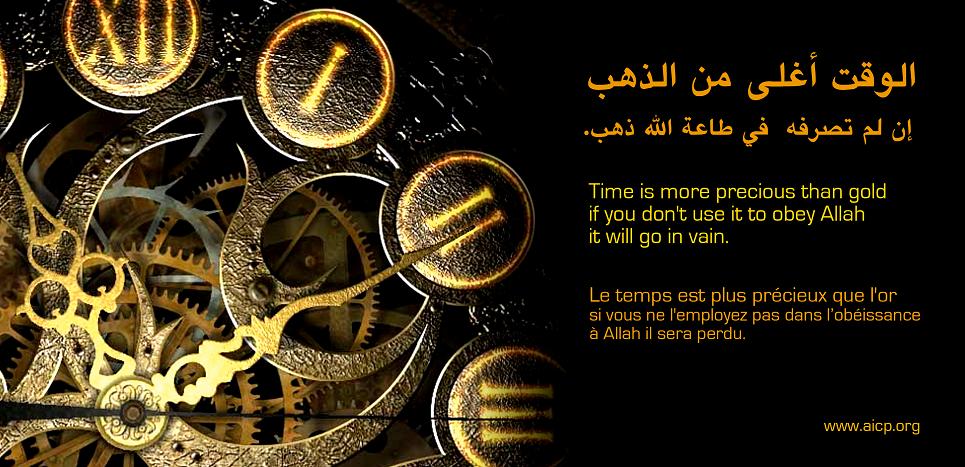(As promised I will be posting, in the following four days, the four parts of time management strategies.)
Curtsey of The Fountain: Time Management in the life of the Prophet Muhammad
Four peinciples emerge as we examine the life of the Prophet Muhammad from a time management perspective [Canan 1994].
1. Appreciation of the value of time and, consequently, making the best use of every piece of available time.
2. The guidance of a mission, a set of values, and priorities in planning every activity.
3. Establishment of a time policy or a time budget.
4. The scheduling and completion of activities within allocated time slots.
Now we will give examples of how these principles were put to practice in the prophetic tradition.
Appreciation of the value of time
The value of time is emphasized in many verse of the Qur’an and in many prophetic sayings. In particular, God swears by time at the beginning of the chapter Asr in the Qur’an, meaning “time through the ages” or “afternoon:. It is the general opinion of the interpreters of the Qur’an that such reference are intended to draw attention to those concepts and emphasize their importance. The remaining two verses of this short chapter reinforce this view: “1. By the (token of ) time (through the ages)! 2. Verily man is in a state of loss. 3. Except those who believe and do righteous deeds, and exhort one another to truth and exhort one another to steadfastness.” Another oath is to be found at the beginning of Chapter 93, Ad-Dooha or “the morning hours”: (1) By the morning hours, (2) And by the night when it is still.”
In the prayer books attributed to the Prophet Muhammad we see that there are prayers for every occasion [Gulen 2000]. Examples include prayers for beginning an activity, beginning a meal, ending a meal, leaving for a journey, returning from a journey, during the journey, looking in a mirror, during ill health, for rain, against excessive rain, against cold or extreme heat, when entering or exiting a bathroom, and countless others. From these prayers we learn that there is almost no time slot in te Prophet’s life that was not occupied with a useful activity or a prayer. It was obvious on one occasion that the Prophet refused to greet a person who was sitting idly. He greets the very same person on his way back upon seeing them occupied with an activity. The following prophetic saying summarizes his attitude: “the majority of humanity is at a loss as they do not recognize the value of two of God’s gifts: Health and (discretionary) time.” [Bukhari, Riqaq].
Hikmet
Peace & Blessings


No comments:
Post a Comment